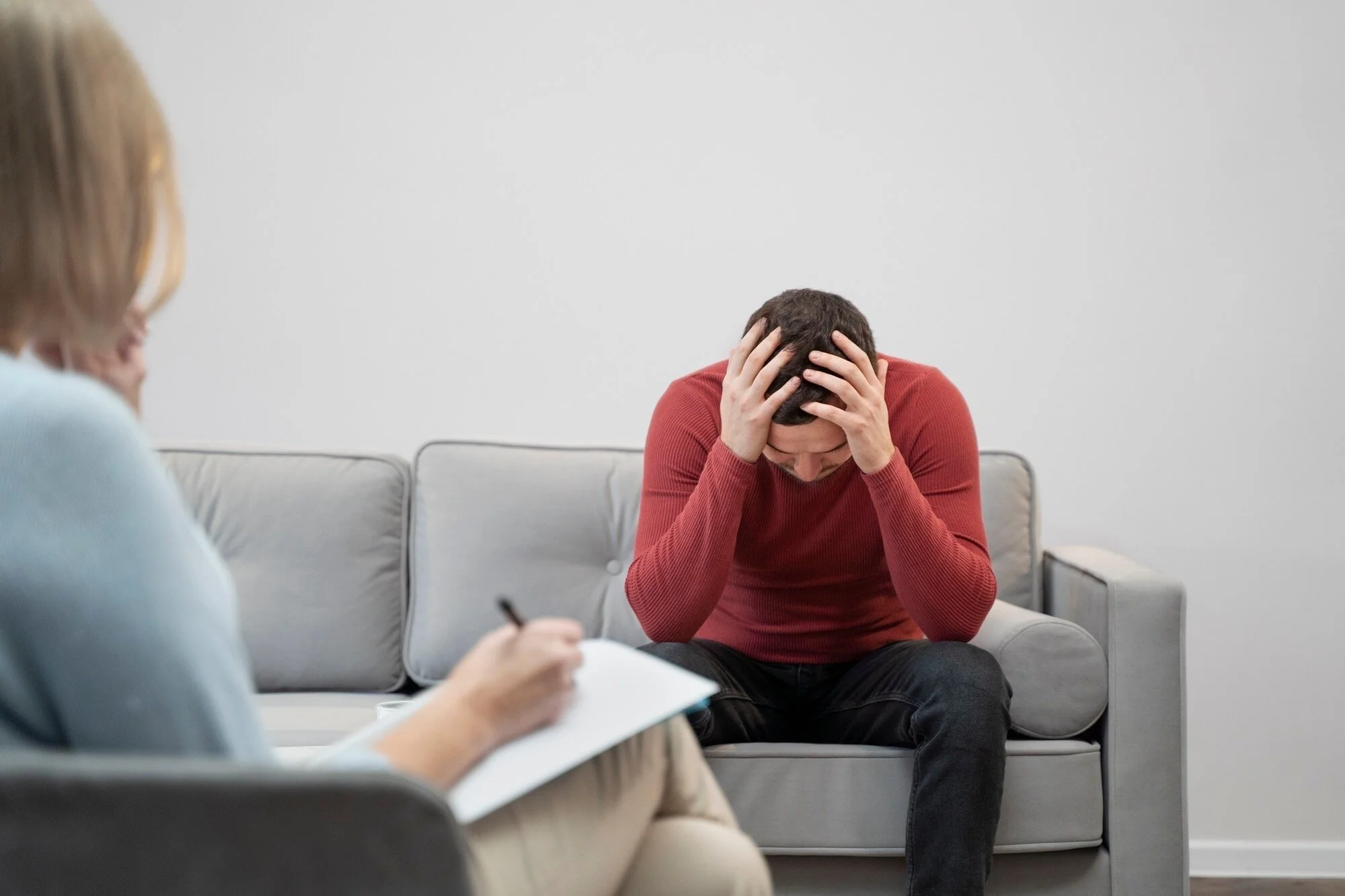Evaluate Your Emotional Health: Dive into a Depression Test
Depression is a pervasive mental health condition affecting millions worldwide. Identifying its symptoms early is crucial for effective intervention and treatment. A depression test is one of the first steps in evaluating mental health, offering insight into whether someone might be experiencing depression. Whether conducted professionally or through a depression self-test, these tools are invaluable in understanding mental well-being.
With advancements in mental health care, individuals now have access to depression tests online, making it easier than ever to assess symptoms discreetly. This article explores the purpose, types, and significance of depression assessments, emphasising the role of luxury rehab centres and recovery retreats in treatment.
What Is a Depression Test?
A depression test is a diagnostic tool used to determine the likelihood of an individual experiencing depressive symptoms. These tests are designed to measure:
Emotional symptoms (e.g., sadness, hopelessness).
Cognitive symptoms (e.g., difficulty concentrating).
Physical symptoms (e.g., fatigue, sleep disturbances).
Tests range from brief depression self-tests to comprehensive clinical depression tests administered by mental health professionals. They are often based on standardised questionnaires like the Patient Health Questionnaire (PHQ-9) or the Beck Depression Inventory (BDI).
The Benefits of Taking a Depression Test
Early Detection: Identifying symptoms early can prevent them from worsening and reduce the risk of long-term complications.
Self-Awareness: A depression self-test helps individuals recognise patterns in their emotions and behaviours, encouraging them to seek help if necessary.
Guidance for Treatment: Results from a clinical depression test can guide healthcare providers in creating tailored treatment plans.
Accessibility: With depression tests online, individuals can assess their mental health from the comfort of their homes.
Types of Depression Tests
Depression Self-Test
A depression self-test is a short, informal questionnaire designed for personal use. While not a substitute for professional diagnosis, it offers an initial understanding of one’s mental state. Many online platforms provide free depression tests online, which are confidential and easy to use.
Clinical Depression Test
Administered by licensed mental health professionals, a clinical depression test is more detailed and diagnostic. It may involve:
Interviews to explore personal and family mental health history.
Questionnaires to assess mood, behaviour, and physical health.
Collaborate with other healthcare providers to rule out physical causes of symptoms.
Depression Assessment Tools
Standardised tools like the PHQ-9 or BDI offer reliable and valid methods for assessing depression severity. These assessments are often used in treatment and luxury rehab centres to guide intervention plans.
How to Interpret Depression Test Results
While depression tests online can provide a preliminary assessment, interpreting results requires context:
Mild Depression: Symptoms may include irritability, low energy, or trouble concentrating. Lifestyle changes and therapy can help.
Moderate Depression: Increased sadness, persistent fatigue, and withdrawal from activities. Professional treatment is recommended.
Severe Depression: Hopelessness, suicidal thoughts, and significant functional impairment. Immediate intervention at a luxury rehab or treatment centre is essential.
The Role of Premium and Luxury Rehab Centers
Luxury rehab centres are designed to provide comprehensive care for individuals struggling with depression. These facilities offer:
Personalised Treatment Plans: Based on results from depression assessments, luxury rehabs provide tailored therapeutic interventions.
Holistic Therapies: Complementary treatments like yoga, mindfulness, and art therapy enhance emotional well-being.
Comfort and Privacy: With amenities like private suites, gourmet meals, and spa services, clients can focus entirely on recovery.
Expert Care: Teams of psychiatrists, psychologists, and wellness coaches ensure top-notch care.
Clients at recovery retreats and luxury retreats benefit from serene environments that promote healing away from daily stressors.
How to Take a Depression Test Online
Taking a depression test online is simple and convenient:
Choose a Reliable Platform: Select a test from a reputable mental health website or organisation.
Answer Honestly: Respond truthfully to questions about mood, energy levels, sleep patterns, and social interactions.
Review Results: Most online tests provide immediate feedback. Use the results to decide whether professional help is needed.
When to Seek Professional Help
A depression test is only the first step. If symptoms persist or worsen, consulting a mental health professional is essential. Seeking care at a luxury rehab or treatment centre ensures access to evidence-based therapies and support.
The Limitations of Depression Tests
While useful, depression tests have their limitations:
They cannot replace professional evaluation.
Results may be influenced by the individual’s mood or understanding of the questions.
Some conditions, like bipolar disorder or anxiety, may mimic depression and require additional testing.
Why Choose a Luxury Rehab for Depression?
For those seeking a comprehensive approach to treatment, luxury rehab centres offer unparalleled benefits:
Expert Diagnostics: Advanced depression assessments ensure accurate diagnosis.
Integrated Care: Combines traditional therapies with holistic practices.
Relaxing Environments: These are designed to reduce stress and foster recovery.
Aftercare Support: Personalized plans to maintain mental health after treatment.
Q&A
Q1: Can a depression test confirm if I have clinical depression?
A depression test provides an initial assessment of your symptoms and their severity but cannot definitively diagnose clinical depression. A formal diagnosis requires evaluation by a licensed mental health professional who will consider test results, medical history, and other factors. If your symptoms align with depression indicators on a clinical depression test, seeking professional help at a treatment centre or luxury rehab is advisable.
Q2: How reliable are online depression tests for evaluating mental health?
Depression tests online are a convenient way to assess your mental health but should be viewed as a preliminary tool. They are designed to help you recognise potential symptoms, not to replace professional diagnosis. Platforms affiliated with reputable mental health organisations or luxury rehab centres often provide more reliable assessments. If an online test suggests depressive tendencies, follow up with a healthcare provider.
Q3: What is included in a clinical depression assessment?
A clinical depression test involves:
Detailed Interviews: Discussions of symptoms, medical history, and personal experiences.
Standardised Questionnaires: Tools like PHQ-9 or BDI to measure symptom severity.
Physical Examination: To rule out medical conditions like thyroid issues or vitamin deficiencies.
Collaboration with Specialists: Mental health professionals may work with other healthcare providers for a comprehensive evaluation.
Such assessments are typically part of care plans at luxury rehab centres or recovery retreats.
Q4: Can I use a depression self-test to monitor my mental health over time?
Yes, a depression self-test can be a helpful tool for tracking changes in your mood, energy, and overall mental health. Repeated assessments can reveal patterns or improvements, especially when a patient is undergoing treatment. However, self-tests should not replace regular check-ins with a mental health professional or the comprehensive care available at a luxury rehab centre.
Q5: How is a depression test different from an assessment for post-traumatic stress disorder (PTSD)?
While both depression and PTSD share overlapping symptoms, their assessments are distinct:
Depression Tests: Focus on mood, energy levels, and symptoms like sadness or fatigue.
PTSD Assessments: Evaluate trauma-related symptoms like flashbacks, hypervigilance, and avoidance behaviours.
If depression stems from unresolved trauma, specialised care at a recovery retreat or luxury rehab offering PTSD-focused therapy may be beneficial.


